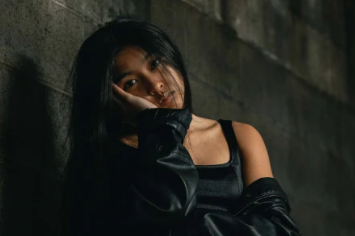Complexities of allyship: actively support marginalized communities
April 21, 2021
Dear allies of marginalized communities,
There’s something we need to talk about.
Allyship is something that is always welcomed among minority groups. Something minorities have noticed about allies, however, is that many don’t realize that the radical activism they see as a hobby to tune in and out of is quite literally the lifestyle of minorities. Marginalized communities do not get to take breaks from their activism, because when it’s your life and rights being debated, it’s difficult not to pay attention. While allies can passively interact with the fight for social justice, minorities do not have the privilege to remain passive when it comes to their rights and freedom. This “fight” is what minorities have experienced since the day we were born. We don’t have the privilege to not engage.
And so, allies must understand one thing: true allyship is not a passive state one can simply exist in—in order to be an ally to Black, indigenous and people of color (BIPOC), LGBTQ+ or other marginalized groups, one must actively support them and their causes. It is not enough to just not be racist—not being racist is actually the absolute bare minimum. To be a true ally of BIPOC and their separate communities, one must actively be anti-racist. If a white person claims to not be racist, yet at the same time is friends with racist individuals whilst excusing their behavior, they are not an ally to BIPOC. The same goes for allies of the LGBTQ+ community. You can be friends with queer and non-cisgender individuals all you want, but if you’re dating an anti-LGBTQ+ person, with the knowledge that they are homophobic, you are not an ally. In fact, you’re just as bad as the person displaying their prejudice.
The complexities of being an ally are much deeper than a simple Instagram post preaching “Love Wins” or “Stop the hate!” It goes so much deeper than saying, “I’m not racist.”
Allies must hold themselves accountable for their prejudice, whether their bigoted behavior is intentional or not. Above all, allies must also acknowledge the privilege they have in comparison to the communities they support.
As a non-Black person of color, it’s my job to use the privilege I have to help amplify the voices of the Black community. It’s a part of my job as an ally to recognize my privilege as an Asian person, and I should acknowledge that the struggles Black individuals experience are vastly different from my own, despite the fact that I’m a part of the BIPOC community. Simultaneously, while I am an ally who wants to actively support the Black community, I also do not have the right to speak for Black people on Black issues. In such a situation, it’s my job to amplify and listen to Black voices, not speak over them.
With that comes another very important sentiment to understand: marginalized communities do not exist to satisfy your performative activism, nor do they exist to make you seem like a better person just because you support them.
The individuals I see most guilty of this type of performative activism are straight, white, cisgender liberals who constantly strive to satisfy their savior complex by portraying themselves as radical activists, whilst in reality the only thing they actively do is speak over the voices of the oppressed. They often speak for these marginalized communities without ever thinking about what these communities feel themselves. The real kicker here, however, is that in plenty of these cases, these cishet whites do not practice what they preach. They’re hypocrites. On social media, they project an image of progressiveness, however they perform racist and anti-LGBTQ+ microaggressions in real life. Behind closed doors, they are nothing close to the woke person they make themselves out to be.
Too many times have I known people to post things on social media supporting the LGBTQ+ community, then later say blatantly anti-LGBTQ+ things to my face, either about me or someone we know. This facade of allyship is so incredibly damaging to marginalized communities, because it comes to the point where we begin to question who we can actually trust. This person says they support the LGBTQ+ community, but what would their reaction be if I told them I was bisexual? Would they automatically think I was a predator? Would they want to distance themselves from me? How do I know that they’re actually supportive of the LGBTQ+ community?
And this goes for so many other circumstances as well.
Performative activism goes hand in hand with the paranoia and voicelessness marginalized groups feel. And so, in order to ease the symptoms ignorant allyship causes, true allies must take the initiative to thoroughly educate themselves and lend an ear to the marginalized groups they supposedly support.
Something I would like to say from the perspective of a bisexual woman of color is that we do not need you to speak for us. We have our own voices, and we’ve spent far too long being silenced by the majority.
It is absolutely vital for the survival of minorities that allies understand that their most important job is to amplify the voices of marginalized communities. The most important job of an ally is to listen.
Sincerely,
A very frustrated queer woman of color.

